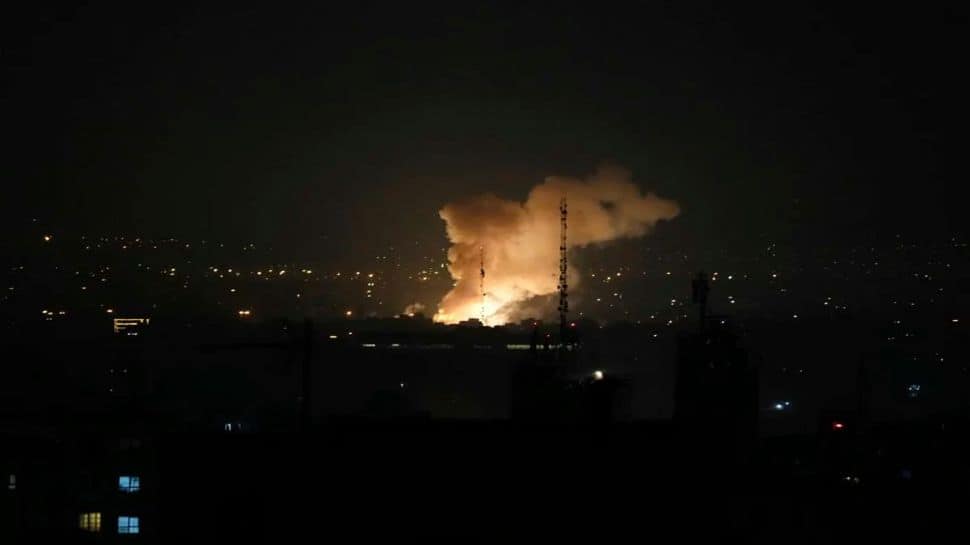Tehran/New Delhi: The sky over Tehran turned red before dawn. Loud booms cracked through the stillness of the Iranian capital, waking residents and shaking buildings. Smoke billowed upward from the outskirts as sirens echoed across neighborhoods. Israel has launched a full-scale pre-emptive assault on Iran – one that could reshape the balance of power in the Middle East overnight.
The strikes, part of a military operation reportedly called Operation Rising Lion, were confirmed by Israeli Prime Minister Benjamin Netanyahu, who said they were targeted at Iran’s nuclear weapons infrastructure.
“Iran has taken steps never seen before – steps to weaponise enriched uranium. This is a clear and present danger to Israel’s very survival,” he said.
According to Iranian state media, multiple explosions were heard northeast of Tehran. Civilian eyewitnesses have confirmed hearing them too. The cause was not immediately clear at first, but as details emerged, it became evident that these were coordinated Israeli airstrikes, dozens of them.
Targets included suspected nuclear research facilities, long-range missile stockpiles and the Revolutionary Guards headquarters. BBC has quoted an Israeli official as saying that Iran now possesses “enough nuclear material to create bombs within days” and that the strikes aimed to dismantle that capability before it could become unstoppable.
Revolutionary Guard Commander Hossein Salami and former atomic chief Fereydoon Abbasi, both believed to have played key roles in advancing Iran’s nuclear ambitions, are feared to have been killed in the assault.
Reports have cited Israeli military as saying that “people actually developing Iran’s nuclear weapon were taken out tonight”. So Israeli attacks were aimed at erasing the expertise rather than hitting facilities.
Israel Declares Special State of Emergency
As tensions soared, Israel’s Defense Minister Israel Katz signed a sweeping emergency order. “Following the State of Israel’s pre-emptive strike against Iran, a missile and drone attack against the State of Israel and its civilian population is expected in the immediate future,” he said.
Educational institutions, public gatherings and non-essential workplaces have been shut down. Air raid sirens wailed across Jerusalem at 3 AM local time. Phones buzzed with emergency alerts. Flightradar24 showed commercial aircraft rerouting away from Tel Aviv. The nation is on edge, bracing for what may come next.
What Pushed Israel To Strike Now?
Although Israel had hinted at a red line, the world assumed diplomacy still had room. President Trump, earlier in the day, was clear in his hesitation: “As long as I think there will be an agreement, I do not want them going in.”
But CBS reported that U.S. officials were told on Wednesday that Israel was “ready to launch”. It is part of why the United States quietly advised some of its citizens to leave the region. The anticipation was not if, but when.
Despite this, U.S. Secretary of State Marco Rubio was quick to distance Washington from the attack. “We are not involved in strikes against Iran… Israel advised us they believe this action was necessary for its self-defense,” he said.
IDF: This Is Just The First Stage
A spokesperson for the Israeli Defense Forces confirmed that this was only the beginning. “Dozens of Israeli Air Force jets completed the first stage of the attack… including strikes on dozens of military targets, including nuclear targets in different areas of Iran,” it said.
The operation, they said, is aimed at neutralising the regime’s nuclear ambitions and dismantling infrastructure that enables Tehran’s long-range missile capabilities. “The State of Israel has no choice but to fulfill the obligation to act in defense of its citizens,” the IDF said.
Iran hasn’t formally responded yet, but a retaliatory wave – missiles, drones or more – is widely expected. Whether Tehran will strike directly at Israel or target U.S. interests across the region remains unknown.
Iranian state media is reporting that Israel had struck residential areas in Tehran and other cities. Children were among those killed, Reuters reported Iran state TV as saying.
A line has been crossed. Israel believes it is now or never. Iran may see this as an act of war. The next 24 to 48 hours could determine whether this crisis ends in fire or if diplomacy has any hope left.










